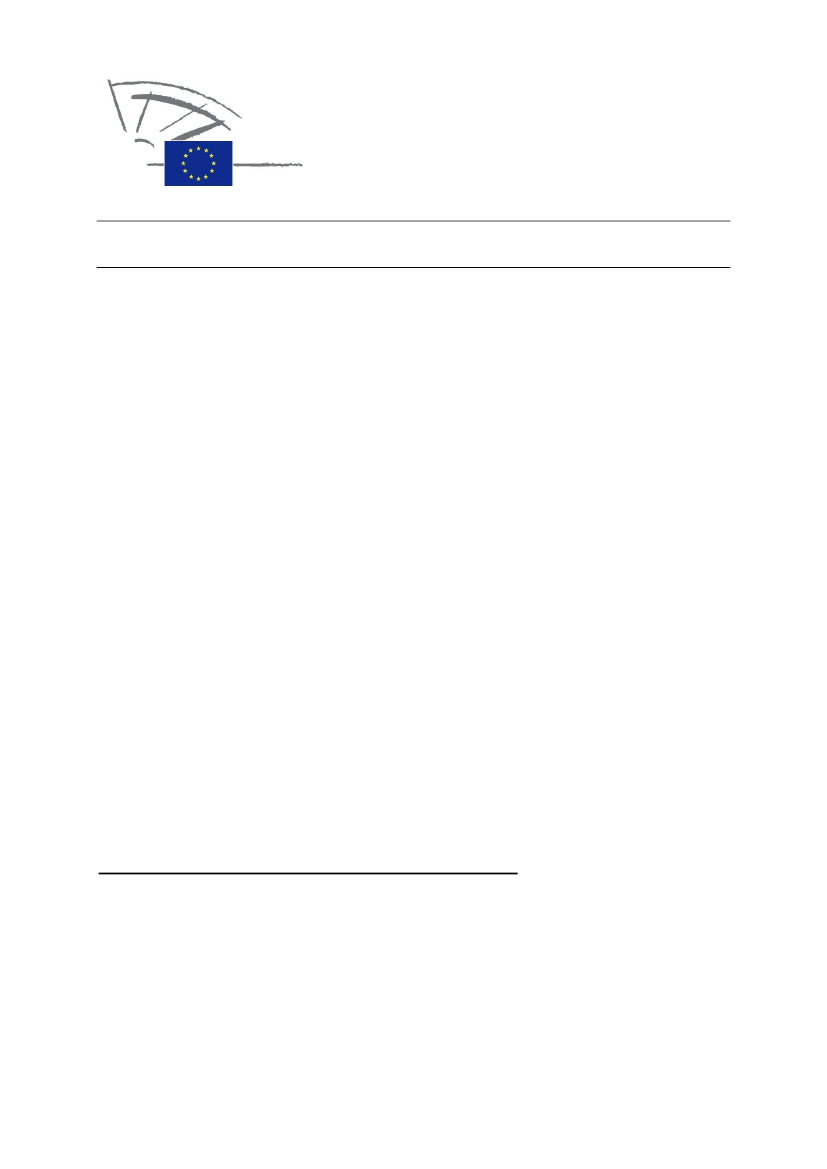Finansudvalget 2013-14
FIU Alm.del Bilag 9
Offentligt
EUROPEAN PARLIAMENTCommittee on Budgetary Control
2009 - 2014
PROGRAMMECommittee on Budgetary ControlInterparliamentary Committee Meeting with National Parliaments“Towards better spending –Models of parliamentary scrutiny of expenditure”Thursday, 14 November 2013 - 9h00 - 12h30
European Parliament
Room: József Antall building (4Q2)
Brussels
8.00 - 9.009.00 - 9.10Registration of participants from national ParliamentsWelcome and introductory remarksMrMichael Theurer,
Chair, Committee on Budgetary Control,European Parliament
Expenditure Scrutiny Models from around the EU09.10 – 10.40 Keynote speaker: MsJolita Vaickienė,
Chair, Committee on Audit, Seimas ofthe Republic of Lithuania
DV\1005745EN.doc
PE519.490v04-00
EN
EN
Key questions for the debate
Budgetary scrutiny allows Parliaments to hold the executive accountable for the use ofpublic resources and promote improvements in their management. This normallyinvolves an examination of public sector accounts and an assessment of the extent towhich they were used for the purpose indicated when the budget was adopted.- How does your Parliament scrutinise expenditure?- Are performance audits appropriate tools to provide for a sound financialmanagement?- Has the economic crisis triggered reforms on budgetary scrutiny in your country?Debate between Members of national Parliaments and Members of the European ParliamentBest practice on rules for funds under shared management10.40 - 12.20 Keynote speaker: MrVitor Manuel da Silva Caldeira,
President of theEuropean Court of AuditorsKey questions for the debate
About three quarters of the EU budget are spent under what is known as "sharedmanagement", with EU member states actually distributing funds and managingexpenditure. This especially concerns EU regional policy and the common agriculturalpolicy. EU funds spent by the Member States appear in the national accounts and anexamination of the national budget will necessarily include an examination of suchfunds.When implementing the budget under shared management, the European Commissionand the Member States commit to respect the principles of sound financialmanagement, transparency and non-discrimination and to fulfill their respectivecontrol and audit obligations in a proportional way.- How can we ensure that EU funds deliver results on the ground?- Do the current rules strike the right balance between budgetary control on the onehand, and the cutting of red tape and administrative burden on the other?- Is the current audit strategy of the EU funds under shared management efficient?- Are the reforms of EU regional policy and the common agricultural policy deliveringon budgetary control and transparency aspects?Debate between Members of national Parliaments and Members of the European Parliament12.20 - 12.30 Conclusions: MrMichael Theurer,
Chair, Committee on Budgetary Control,European Parliament12.30Sandwich lunch
PE519.490v04-00
2/2
DV\1005745EN.doc
EN


